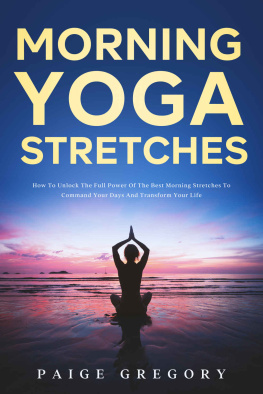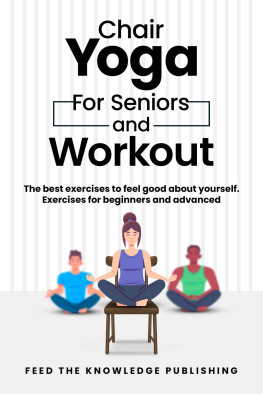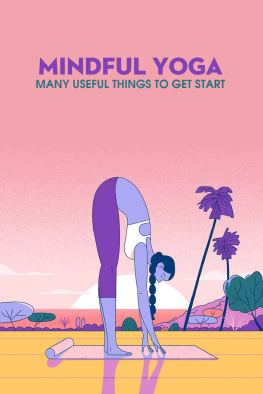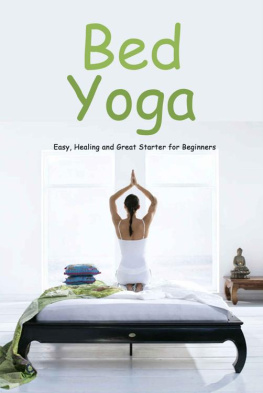How to Unlock the Full Power of The Best Morning Stretches to Command Your Days and Transform Your Life
Introduction
Do you struggle to get through your morning routine without feeling grumpy? Perhaps you have to jumpstart your mind with that cup of coffee, but that is starting to make you caffeine-dependent, which you feel is not healthy for you.
Or do you normally feel less energized and rested in the mornings and are now looking for a way to kickstart your day feeling both physically and mentally healthy?
Well, if that is you, you are not alone.
According to by the New York Post published in May 2020, more than 60% of US citizens cannot say they had enough rest or energy by the time they wake up, which leads to lower motivation, focus, and poor decision-making throughout the day.
But that does not have to be your story every day because I have good news for you! You can rejuvenate your mind and body as well as get ready for tasks by engaging in some revitalizing yoga stretches
But, even with the assurance that yoga stretches are great, you may still be wondering:
- Are yoga stretches enough to me you going?
- What other benefits of doing yoga can I enjoy?
- Are there any side effects of doing yoga?
- Can I perform yoga stretches from anywhere?
And much more.
If you have these and other similar questions, this Morning Yoga Stretches Guide will answer any questions regarding yoga stretches and enlighten you on how to perform them. More specifically, this book will cover subjects like:
- What yoga is
- The origin of yoga
- Health benefits of yoga
- Tips to get you started on yoga poses
- Yoga stretches for different body parts
And much more!
So, if you have ever wondered what this age-old practice can do for your well-being, this is just the book for you!
Shall we begin?
PS: Id like your feedback. If you are happy with this book, please leave a review on Amazon.
Please leave a review for this book on Amazon by visiting the page below:
https://amzn.to/2VMR5qr
Chapter 1: Understanding Yoga and Its Benefits
Lets start at the very beginning:
What Is Yoga?
Yoga is a practice of the body and mind that includes meditation, body postures, and breathing techniques. At the most simplified level, morning yoga stretches are poses you do in the mornings to help your mind and body prepare for the day ahead.
The main idea behind yoga is to connect the mind, body, and soul; however, modern yoga focuses on strength, breathing, and exercise.
The Origin Of Yoga and Its Evolution
Yoga dates back to 5000 years ago in Northern India. The Indians are said to have owned sacred texts known as the Rig-Veda, which contained mantras, songs, and rituals used by the priests and where the word yoga finds its first mention. Hindus recognized and continue to recognize yoga as one of the schools of philosophy and a vital part of Buddhism, along with its mediation practices.
In the pre-classical period, yoga did not involve posture and breathing practices; rather, it was a way of life. In the post-classical yoga period, yoga masters developed yoga practices meant to prolong life and restore the body and mind.
However, it was not until the late 1800s and early 1900s that these yoga masters began exploring the West and spreading their yoga works by writing books and establishing yoga centers.
In 1947, as the spread of yoga in the West continued, Indra Devi, a pioneering yoga teacher, opened a yoga studio in Hollywood. Since then, more Western and Indian teachers have become popular yoga pioneers with multiple followers, thus making yoga more popular globally.
What Are The Health Benefits Of Yoga?
The practice of yoga utilizes techniques that focus on physical and mental well-being. When the participant is in a positive state of mind, healing and restoration happen faster than when the mind is in a negative state.
According to a done by the National Library of Medicine in 2011 to explore the therapeutic effects of yoga and its ability to increase the quality of life, the results showed the following benefits of yoga:
Improves pulmonary and cardiovascular function
50 participants attending yoga classes were subjected to 75 minutes of daily yoga practice for 41 days. Pulmonary and cardiovascular tests were recorded before the yoga training began, then reassessed after 41 days.
According to the test , there was a decrease in the participants resting heart rate and blood pressure. Researchers concluded that yoga is beneficial in improving cardiovascular and pulmonary function.
Enhances recovery from addiction
Yoga can prove very helpful when the mind starts depending on alcohol and drugs. This may explain why recovery centers have used yoga to help affected individuals overcome withdrawal symptoms from the addiction and manage stress.
One main thing to note about addiction to certain substances is that it alters the brain. These alterations impact its function and structure because drugs and alcohol tend to fill the brains nucleus accumbens and trigger high levels of dopamine, the neurotransmitter responsible for feelings of pleasure, motivation, and more.
When the dopamine levels are high, one feels encouraged to continue seeking the substances, making them feel as though they need them to survive or feel good.
A by the National Library of Medicine states that one core benefit of yoga is its ability to help return dopamine levels to normal. This is because the areas of the brain that help you be more attentive and mindful enlarge, which can help improve control over cravings and impulses, thus helping with maintaining sobriety.
Also, Yoga techniques like meditation involve mindfulness, which is repeated focus on the present moments while letting go of distracting thoughts and emotions. When sustained for long periods, one can control their mind.
Improves sleep routines
by the Journal of Ayurveda and Integrative Medicine in 2013 involved a group of 35 participants practicing yoga regularly for a long-term period of 5 years, and another group of yoga non-participants, with researchers then assessing the sleep patterns of both groups.
The results showed that those who practiced yoga had fewer sleep disturbances, took a short time to fall asleep, and showed a significant decrease in the use of sleeping pills. The researchers concluded that this effect was because yoga stretches tend to stretch and relax muscles, thus resulting in physical and mental exertion.
Better focus in the day
By doing morning yoga, you can declutter your mind through meditation and exercises that require balance, such as the one-leg balance, which requires focus. This will help force your brain to wake up and be ready to concentrate on the tasks ahead.
Increases your energy and flexibility
When you stretch your body, your body muscles receive oxygen three times faster than when you are resting. The red blood cells are responsible for carrying the oxygen that the muscles need, and when one is active, the heart pumps and supplies the blood all over the body, including the muscles and energy cells. When your body gets the oxygen it needs, it becomes newly energized, making you feel fresher and more alert.
On the other hand, the more yoga stretches you do, the more you stretch your muscles which helps increase your flexibility and decrease the stiffness in the muscles.

















